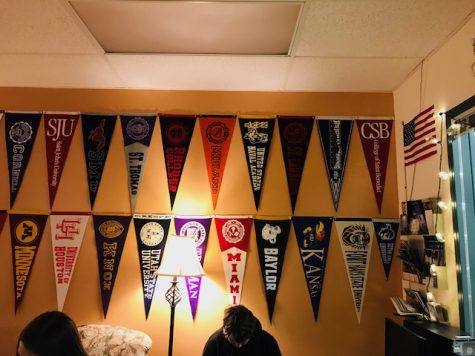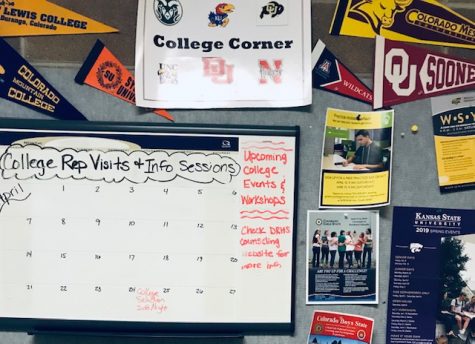Who Cheats In College Admissions? Everyone.
A News Commentary on Why ‘Operation Varsity Blues’ Raises Questions of Morality In Students
April 25, 2019
It’s like the final time you held your mother’s hand before crossing the street — clutching tight to familiarity and comfort. Or your final A++ on a paper — something we students will never see again. Or that final gold star you wish to see next to your name. As teenagers prepare for college and face their final challenge of adolescence before the complicated journey into adulthood, the majority receive their final perks from their parents, teachers, and administrators in the form of the college admissions process.
Students are sat down in rooms and taught the difference between grants and loans, they’re informed about how to apply, where to apply, why to apply. Teachers are asked to write recommendations for students they’ve known for less than 271 days 1 “year.” Parents mention that time you worked at a church daycare for 2 days “months.” That one time you helped your friend with homework “tutored students” becomes the focal point in your appearance to college admissions representatives.
Am I wrong to embellish? Am I wrong to look at the 10 hours of community service I’ve completed, and panic, and change that 10 to 20? How do I know that one line on one resume will mean the difference in where I go and who I become?
The answer is: I don’t know. No one can know. The FBI’s inside look at the college admissions process known as “Operation Varsity Blues” tried to shine a light on the corruption, the cheating, the coaches, and the colleges that are involved with the admissions scandal.
But they revealed something everyone deep down already knew — people cheat.
Congressman Cedric Richmond issued a statement on the cheating by parents and the cost on their morality. “For far too long, the rich have gotten away with stealing with little to no consequences,” said Richmond. “The recent bribery scandal put on full display for the world what many have already known for decades. The rich and famous, who did not believe their children had what it takes to gain acceptance to the most elite institutions, were willing to commit fraud and undermine the integrity of hardworking applicants of color and those from a lower tax bracket.”
Is it immoral to want your kids, your students, yourself to succeed? No. But is it immoral to use cheating to better others at the expense of hardworking students without a parent’s paycheck to back them up? Yes.
“The bribery and fraud uncovered in the college admissions scandal undermines the integrity of our higher education system and robs deserving students of opportunities they have earned. I am grateful to investigators for identifying and stopping this illegal scheme,” says Bobby Scott the Chairman of the Education and Labor Committee, in a press release following the release of “Operation Varsity Blues.” He echoes the sentiment on how, while cheating is not something new, it impacts the overall morality and integrity of everyone involved with the college admissions process.
Responding to this scandal, several colleges have altered their admissions process, fearing lawsuits and attacks in the wake of this. The University of Denver instituted a change in their testing policy. A new test-optional process will allow students to opt out of sending their ACT and SAT scores if they don’t believe they accurately reflected their application.
“The University of Denver is committed to access, equity and diversity, and this decision strengthens that commitment. A test-optional admissions process aligns with our strategic plan, DU IMPACT 2025, by removing barriers for those who may lack standardized test-prep resources but who are exceptional students,” says Chancellor Rebecca Chop.
Again this raises the question, will a 1320 on the SAT make or break who I am as a student and an applicant? Probably not, depending on the school. But my morality and the morality of those who cheat and who help others cheat is at stake if that test score is bought and paid for.
Athena Keckler (10) looks to the future and how these changes might affect her and others who share a desire to go to college. “I want to live in an ideal world that will allow me to be accepted into the colleges I want based on my kindness, my compassion, my creativity. However, that’s not exactly the world we live in. I need to do well on my SAT or my ACT, get good grades, do more extracurricular and volunteer work. But do the latter things really affect the former? Am I any less kind or compassionate or creative if I fail science or math? No, but I am if I cheat my way in.”





